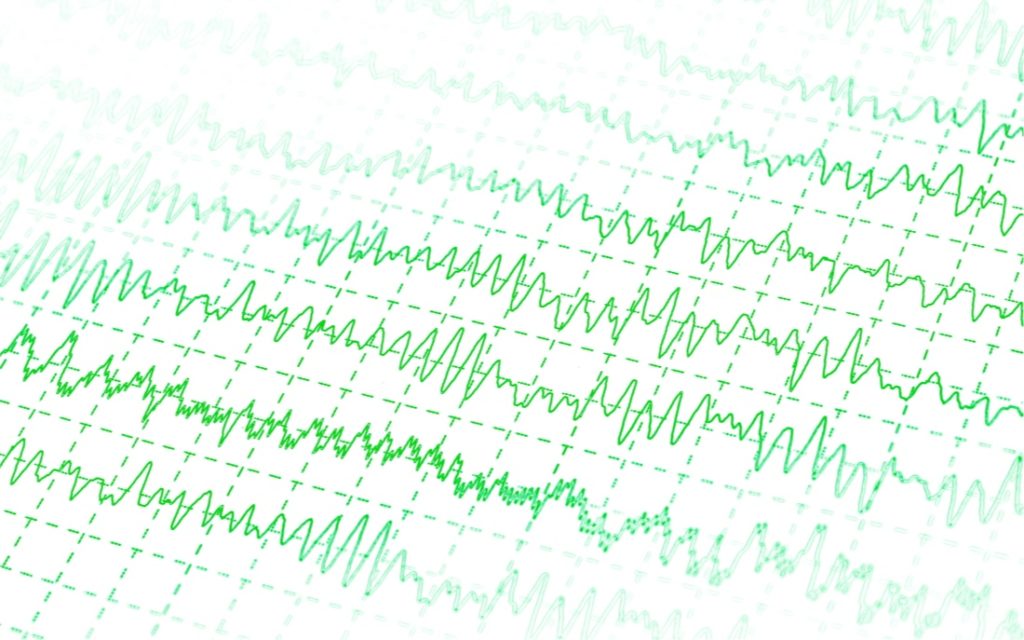Quick Hits
Daily brief research updates from the cognitive sciences

There have been numerous brain areas associated with empathy and feeling for others – some of which I have written about in other places. However, researchers at the Institute for Basic Science in South Korea have now discovered a new signature and underlying neural mechanisms to empathy.
Empathy is a critical aspect of human sociality giving us the capacity to sense, feel, and share the emotions of others. But the biological mechanisms are also shared with other animal – including rodents. This study focused on “observational fear”, commonly used in scientific research as a basic form of emotional contagion and affective empathy.
In this experimental protocol, one mouse is given a small electrical shock, poor mouse. Another can see this through a transparent screen. The observer mouse will also immediately exhibit a fear response and freeze. What the researchers were able to do is to see that this empathetic fear response is different to the first-hand experienced fear response and is coordinated by brain waves that are synchronised between different brain regions. Specifically, two areas, one called the Anterior Cingulate Cortex (ACC) which helps with attention, and a part of the Amygdala (BLA) which is involved in fear and threat detection.
In the observer mice there was a pattern of increased slow waves, 5-7Hz (theta brain waves), between these two regions. In the mice that experienced the shock, and therefore a fear response, slow waves were only seen in the Amygdala. This suggests two different patterns. The researchers then tested the causality to see if this does indeed trigger this behaviour. What they found is that if they inhibited the rhythms in the ACC-BLA circuit then it significantly impacted the observational fear freezing.
Furthermore, this seems to be controlled by another regions in the brain known as the hippocampus which is generally responsible for memory and navigation. Hippocampus theta rhythms seem to coordinate these regions – similarly by disrupting the hippocampal theta rhythms observational fear freezing was inhibited or increased.
So, this gives us some clear evidence that empathy is also driven by coordination between different brain regions and coordinated by the hippocampus. Whether this is for all types of emotions is another question but intriguing it is.
For us human beings there is no obvious way to synchronize theta brain waves – so no help on the horizon for those lacking empathy – or to turn it down either!

Andy Habermacher
Andy is author of leading brains Review, Neuroleadership, and multiple other books. He has been intensively involved in writing and research into neuroleadership and is considered one of Europe’s leading experts. He is also a well-known public speaker, speaking on the brain and human behaviour.
Andy is also a masters athlete (middle distance running) and competes regularly at international competitions (and holds a few national records in his age category).
References
Seong-Wook Kim, Minsoo Kim, Jinhee Baek, Charles-Francois Latchoumane, Gireesh Gangadharan, Yongwoo Yoon, Duk-Soo Kim, Jin Hyung Lee, Hee-Sup Shin.
Hemispherically lateralized rhythmic oscillations in the cingulate-amygdala circuit drive affective empathy in mice.
Neuron, 2022
DOI: 10.1016/j.neuron.2022.11.001
More Quick Hits
Your Job Can Protect You From Cognitive Decline
Quick HitsDaily brief research updates from the cognitive sciences f you have the right job that is. First let’s understand what the researchers were investigating. There is something strange going on with Alzheimer’s - we know that in Alzheimer’s...
How Nature Is Good For Your Health
Quick HitsDaily brief research updates from the cognitive sciences have reported multiple times how nature is good for your health. For example, in my article on the simple benefits of walking I also show how nature helps in multiple ways such a...
Do Your Chores, You’ll Live Longer – And Better!
Quick HitsDaily brief research updates from the cognitive sciences o, I haven’t been paid to write this by irate spouses or parents! Fact is doing the chores could be very beneficial to your wellbeing. How so you may ask? Well, I admit I have...
Why Having a Hit Reduces Creativity
Quick HitsDaily brief research updates from the cognitive sciences n music this happens often – a band lands a hit but then fails to do anything special again. A well-known occurrence with hits like Tequila in 1958 being the ultimate one-hit wonder...
The Surprising Results Of How Music Reduces Pain in Your Brain
Quick HitsDaily brief research updates from the cognitive sciences hen you’re in pain any form of relief is welcome – we tend to immediately revert to pain killers but there are many other methods of, at least, reducing pain. I have recently...
Smartphones Improve Your Memory
Quick HitsDaily brief research updates from the cognitive sciencesany people believe that using smartphones and other electronic devices is ruining our memories and ability to think or simply use our brains. Research has shown a more nuanced...






